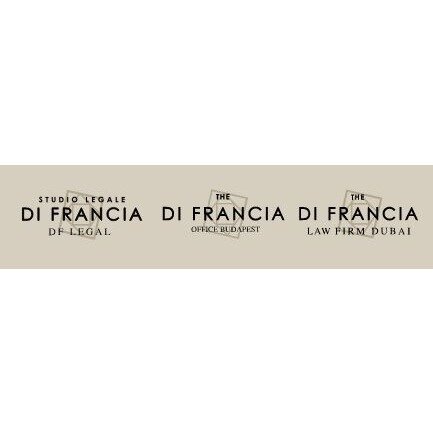Best Art & Cultural Property Law Lawyers in Bologna
Share your needs with us, get contacted by law firms.
Free. Takes 2 min.
List of the best lawyers in Bologna, Italy
About Art & Cultural Property Law in Bologna, Italy
Art & Cultural Property Law in Bologna, Italy, encompasses the legal frameworks that regulate the creation, protection, and monetization of artistic works, as well as the preservation and management of cultural heritage. Bologna, known for its rich history and cultural institutions, is a focal point for the application of these laws. This field covers various legal aspects, including but not limited to the protection of intellectual property, the restitution and repatriation of cultural artifacts, and compliance with international conventions on cultural property. The city’s strong ties to the arts make understanding these laws critical for artists, collectors, museums, and cultural institutions.
Why You May Need a Lawyer
Engaging a lawyer in the field of Art & Cultural Property Law can be crucial in several scenarios. Common situations include:
- Protection of Intellectual Property: Artists and creators need legal assistance to protect their rights and safeguard against unauthorized use of their works.
- Art Transactions: Buying, selling, or loaning artworks can involve complex legal agreements that require professional oversight to ensure fair practices.
- Cultural Heritage Issues: Legal disputes over the ownership and repatriation of cultural artifacts often require expert legal intervention.
- Museum and Gallery Operations: Institutions need legal guidance on issues of ownership, loans, and copyrights for exhibitions.
- Estate Planning for Art Collections: Legal advice is necessary to manage and distribute art collections in wills and estates.
- Compliance with Cultural Patrimony Laws: Understanding local, national, and international laws governing cultural property is essential, particularly if involved in exporting or importing artworks.
Local Laws Overview
Bologna, as part of Italy, is subject to a robust legal framework governing art and cultural property. Key aspects include:
- Code of Cultural Heritage and Landscape: This national law provides comprehensive guidelines for the protection and conservation of cultural heritage and its landscape.
- Intellectual Property Code: Governs the rights over artistic works, including copyright, moral rights, and neighboring rights.
- UNESCO Conventions: Italy is a signatory to several international treaties, including those concerning the illicit import, export, and transfer of cultural property.
- Regional Regulations: Emilia-Romagna, the region encompassing Bologna, has specific regulations and policies supporting cultural heritage, emphasizing preservation and promotion.
Frequently Asked Questions
What is the definition of cultural property under Italian law?
Cultural property includes any items deemed to have intrinsic cultural, historical, or archaeological value, such as paintings, sculptures, monuments, manuscripts, and historical artifacts.
How are cultural property disputes typically resolved?
Disputes are usually resolved through negotiation or arbitration, but can also escalate to litigation in Italian courts or international forums, depending on the case.
What should I do if I suspect a piece of art I own is stolen?
Report the item to local authorities and seek legal counsel immediately to understand your rights and obligations under Italian and international law.
Are there legal restrictions on exporting art from Italy?
Yes, strict regulations exist to control the export of art, aimed at safeguarding cultural heritage. Proper authorization is required, and certain items may be prohibited from leaving the country.
What are my rights as an artist under Italian law?
Artists have rights to control the reproduction, distribution, and exhibition of their works, including moral rights that protect the integrity of the work and attribution rights.
How can I protect my artwork legally?
You can protect your artwork by registering copyrights, trademarks, or patents where applicable, and by drafting contracts that specify terms for usage and reproduction.
What is cultural patrimony, and how is it protected in Bologna?
Cultural patrimony refers to cultural heritage items that have community significance. In Bologna, these are protected by local and national laws, preserving them for public benefit.
Can I challenge the cultural significance classification of a property I own?
Yes, property owners can contest classifications through legal channels, presenting evidence to support their claims regarding the lack of cultural significance.
How is ownership of cultural property proven in legal terms?
Ownership is proven through documents like purchase receipts, provenance history, and any legal papers that trace the history of the artwork or artifact.
Is Bologna subject to EU cultural property laws?
Yes, as part of Italy, Bologna adheres to EU directives regarding cultural property, which include regulations on the return and restitution of cultural goods unlawfully removed from EU countries.
Additional Resources
Several resources and organizations can provide additional guidance and support:
- Italian Ministry of Culture: Offers resources and information on Italian cultural policies and heritage protection.
- ICOM Italy (International Council of Museums): A network providing information on museum standards and practices.
- UNESCO Italian Commission: Works on the protection and promotion of Italy’s cultural heritage under UNESCO directives.
- Institute of Art and Law: Provides academic resources and workshops on art law.
Next Steps
If you require legal assistance in Art & Cultural Property Law in Bologna, consider the following steps:
- Find a Specialized Lawyer: Look for legal professionals specializing in art law, who are experienced in both local and international legal frameworks.
- Consult Professional Associations: Reach out to local bar associations or legal societies that concentrate on art and cultural property for referrals and advice.
- Gather Documentation: Collect all relevant documentation regarding your case, including purchase receipts, provenance records, and any existing legal agreements related to the artwork or cultural property.
- Stay Informed: Keep abreast of changes in legislation and international treaties affecting art and cultural property law by attending seminars and reading the latest legal publications.
Lawzana helps you find the best lawyers and law firms in Bologna through a curated and pre-screened list of qualified legal professionals. Our platform offers rankings and detailed profiles of attorneys and law firms, allowing you to compare based on practice areas, including Art & Cultural Property Law, experience, and client feedback.
Each profile includes a description of the firm's areas of practice, client reviews, team members and partners, year of establishment, spoken languages, office locations, contact information, social media presence, and any published articles or resources. Most firms on our platform speak English and are experienced in both local and international legal matters.
Get a quote from top-rated law firms in Bologna, Italy — quickly, securely, and without unnecessary hassle.
Disclaimer:
The information provided on this page is for general informational purposes only and does not constitute legal advice. While we strive to ensure the accuracy and relevance of the content, legal information may change over time, and interpretations of the law can vary. You should always consult with a qualified legal professional for advice specific to your situation.
We disclaim all liability for actions taken or not taken based on the content of this page. If you believe any information is incorrect or outdated, please contact us, and we will review and update it where appropriate.













